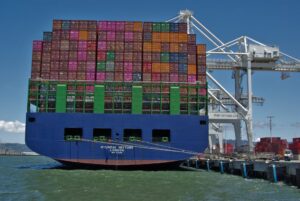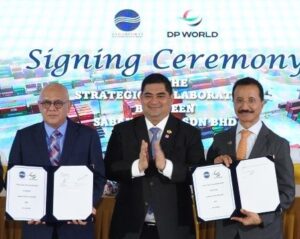The Port of Rotterdam has been using maritime simulators and software developed by VSTEP to train commanding officers for its vessels.
Although it first started as a developer of naval simulation games, VSTEP began building maritime simulators in 2011. This was only for maritime navigation at first but has recently been used for inland navigation also.
In 2022, the Shipping and Transport College Rotterdam will start training students on NAUTIS inland navigation simulators built by the company.
These will allow students to virtually navigate all the oceans and rivers of the world onboard a vessel that meets their training objectives.
The software will also be used to train pilots, who have to safely pilot vessels in and out of the port even in difficult weather conditions or when there is a lot of congestion.
“Training on a simulator has several advantages over training onboard, said Tije Vos, Commerical Director of VSTEP.
“It’s cost-effective and safe. You can create an accident with a simulator without causing damage to people or vessels. You can better evaluate what went wrong in order to learn from your mistakes.
“We call this engineered failure. This fits well with our vision: learning through simulation. Our simulators help clients meet their training objectives. That’s why our first question is always, ‘What do you want to train someone to do?”
The company’s inland navigation simulators are now being used in all inland navigation schools in the Netherlands, as well as some in wider Europe.

By 2030, VSTEP aims to have a third of maritime personnel worldwide trained on one of its simulators.
With this goal in mind, it is launching a solution in spring 2022 that allows users to train at home or onboard.
“A simulator is the end station for training courses. It demands a huge investment. If we want to realise our ambition, we have to become more accessible and offer home training options with the same high quality as the current simulators,” continued Vos.
“It’s a real challenge, but we’re going to keep developing to help the maritime sector become even more efficient in the future.”
Near the end of 2021, the Port of Rotterdam also introduced Quay Connect – a new blockchain technology to make customs procedures from the Netherlands to the UK easier.
The service allows for the automatic exchange of information with customs authorities at ports in the United Kingdom, enabling exporters to have the full ability to digitalise and streamline the export and customs process.









